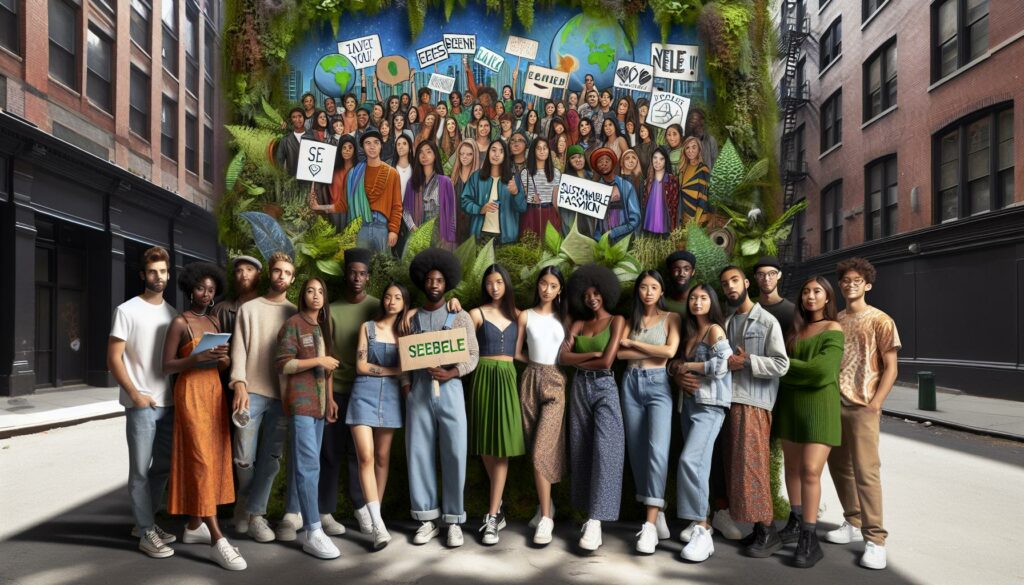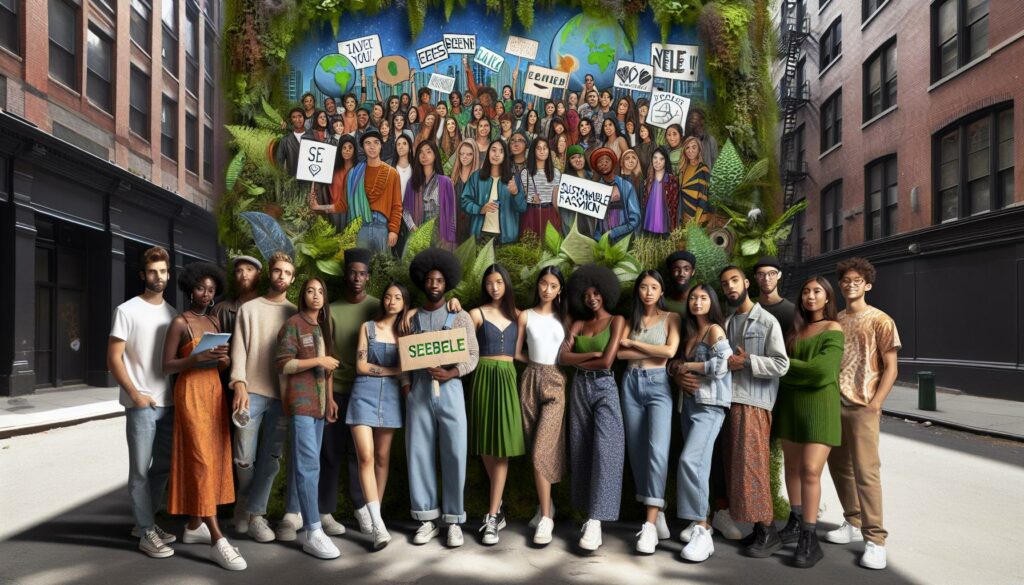Fashion isn’t just about looking good; it’s about making choices that reflect our values. As I dive into the world of sustainable fashion, I discover a movement that’s reshaping the industry for the better. Embracing sustainable practices not only benefits the environment but also enhances our personal style and supports ethical labor practices.
The benefits of sustainable fashion extend far beyond the clothes we wear. It fosters creativity and innovation, encouraging designers to think outside the box and create timeless pieces. By choosing sustainable options, I contribute to a healthier planet and a more equitable fashion landscape. Join me as I explore the many ways sustainable fashion can transform our wardrobes and the world around us.
- Environmental Impact: Sustainable fashion significantly reduces waste and carbon footprint through responsible materials and ethical production practices, contributing to a healthier planet.
- Promotes Conscious Consumption: It encourages consumers to invest in quality over quantity, fostering a mindset of mindful consumption and appreciation for timeless pieces.
- Economic Growth: By supporting local economies and creating green jobs, sustainable fashion enhances community resilience and drives economic stability.
- Ethical Labor Standards: This movement emphasizes ethical labor practices, ensuring fair wages and safe working conditions for workers, promoting dignity within the fashion industry.
- Innovation and Creativity: Sustainable fashion inspires innovative design, as creators explore eco-friendly materials and upcycled products, leading to unique and stylish garments.
- Support for Fair Trade: By promoting fair trade practices, sustainable fashion strengthens marginalized communities and ensures equitable trading conditions, advancing social justice.
Benefits of Sustainable Fashion
Sustainable fashion focuses on reducing the negative impacts of clothing production and consumption. It emphasizes ethical practices and environmentally friendly materials. This approach promotes slower production cycles, allowing for responsible sourcing and mindful consumption.
Sustainable fashion incorporates various methods, such as using organic fabrics, recycling materials, and adopting fair labor practices. Brands committed to sustainability often prioritize transparency, ensuring consumers understand their supply chain. By making informed choices, I can support businesses that align with my values.
Innovative designers embrace sustainable techniques, which fosters creativity. They explore alternatives, like biodegradable materials and upcycled products, creating unique and stylish pieces. My wardrobe can reflect both personal expression and ecological consciousness.
Participating in sustainable fashion contributes to a broader movement toward environmental stewardship. It supports the fight against waste in landfills and the pollution caused by fast-fashion practices. Adopting sustainable habits challenges me to rethink my consumption patterns and encourages a deeper appreciation for quality over quantity.
Environmental Benefits of Sustainable Fashion
Benefits of Sustainable Fashion significantly benefits the environment, addressing pressing ecological issues through responsible practices. Key advantages include a reduction in waste and a decreased carbon footprint.
Reduction of Waste
Sustainable fashion actively minimizes waste through various methods. Brands emphasize using materials that are recycled or upcycled, which prevents excessive landfill contributions. It’s common for designers to adopt a “”zero-waste”” philosophy, where patterns are designed to utilize all fabric, leaving nothing behind. Additionally, slow fashion practices encourage consumers to invest in quality pieces rather than disposable clothing. This shift in consumer behavior helps reduce overproduction and the subsequent waste generated by fast fashion industries.
Decreased Carbon Footprint
Sustainable fashion reduces the carbon footprint associated with clothing production. By sourcing materials locally or using organic fabrics, brands can significantly lower transportation emissions. Implementing energy-efficient processes during production further cuts emissions. It’s notable that some sustainable brands invest in renewable energy sources for manufacturing, further diminishing their environmental impact. Choosing sustainable fashion not only supports eco-friendly brands but also contributes to the global effort to combat climate change through lower overall emissions in the fashion sector.
Economic Benefits of Sustainable Fashion
Sustainable fashion brings a range of economic advantages that positively impact communities and industries. By prioritizing ethical practices, it fosters growth and provides various opportunities.
Support for Local Economies
Benefits of Sustainable Fashion supports local economies by promoting the use of locally sourced materials and craftsmanship. Brands focusing on sustainability often collaborate with regional artisans and manufacturers, ensuring fair wages and stable jobs. This support strengthens local economies, enhances community resilience, and reduces dependence on global supply chains. Consumers benefit by receiving products rooted in their culture while stimulating economic growth within their communities.
Job Creation in Sustainable Industries
Sustainable fashion drives job creation in emerging industries like organic farming, recycling, and fair trade. The shift towards ethical production methods opens opportunities for skilled labor in areas such as textile innovation, eco-friendly manufacturing, and sustainable retail management. As brands expand their sustainable practices, they contribute to the development of green jobs that promote long-term employment and economic stability. For instance, positions focused on product lifecycle assessment or sustainable design generate meaningful work while addressing environmental challenges.
Social Benefits of Sustainable Fashion
Sustainable fashion delivers significant social benefits, fostering ethical standards and community support within the fashion industry. This movement enhances not only the production processes but also improves the lives of individuals involved in fashion.
Ethical Labor Practices
Sustainable fashion emphasizes ethical labor practices that ensure fair wages and safe working conditions for workers. Brands committed to sustainability often provide transparency in their supply chains. They verify that workers receive fair compensation and operate in safe environments. For example, companies like Patagonia and Everlane openly share information about their factories, promoting accountability and allowing consumers to support responsible practices. Prioritizing ethical labor habits cultivates dignity and respect for workers, fostering a more equitable industry.
Promotion of Fair Trade
Fair trade initiatives play a vital role in Benefits of Sustainable Fashion by creating equitable trading conditions for artisans and producers. These programs help marginalized communities gain access to global markets while receiving fair compensation for their work. For instance, brands like People Tree partner with fair trade organizations to support artisans in developing countries, ensuring they receive fair prices for handmade goods. This collaboration strengthens local economies and empowers communities, ensuring that social and environmental standards are upheld. By promoting fair trade, sustainable fashion advances social equity and creates a more just world.
Embracing sustainable fashion is more than just a trend; it’s a lifestyle choice that reflects our values and commitment to a better world. By supporting ethical brands and making mindful purchases, we can positively impact the environment and promote social equity.
Sustainable fashion encourages us to appreciate craftsmanship and invest in quality pieces that stand the test of time. It’s about creating a wardrobe that not only looks good but also does good.
Together, we can challenge the fast-fashion model and contribute to a more sustainable future, one outfit at a time. Let’s take pride in our choices and inspire others to join this movement toward a more responsible and stylish way of living.



